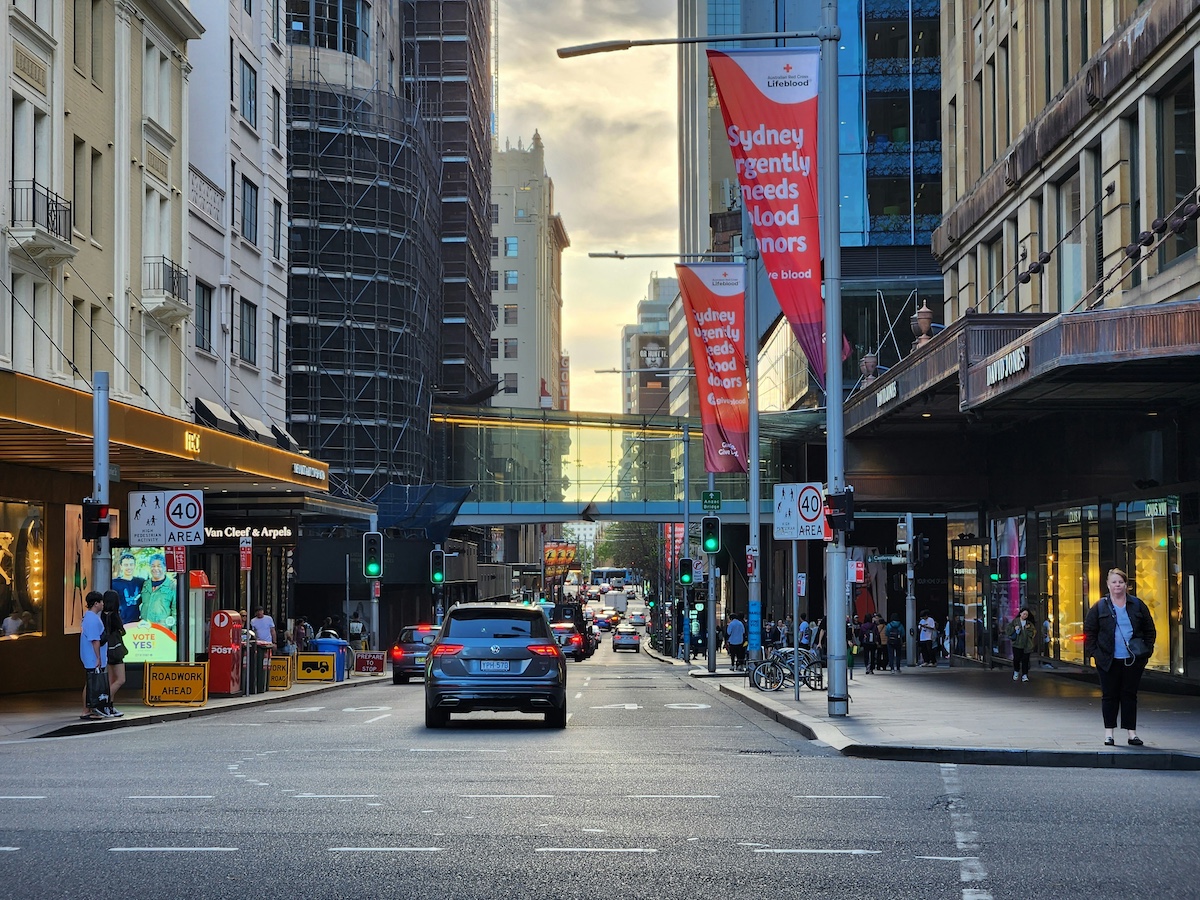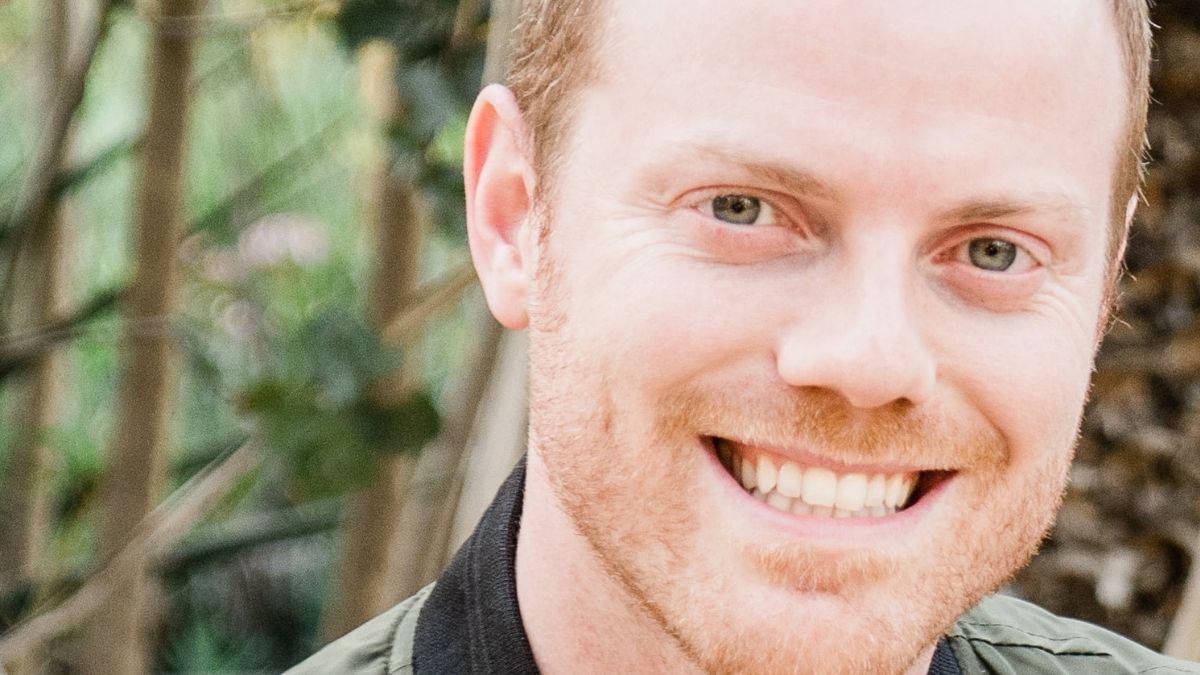Why the Future of Retail is Local, Personal, and Built on Stories
For the last decade, we’ve been hearing a persistent, gloomy narrative. "The internet is killing retail." "The high street is dead." "Amazon is the inevitable victor." It’s a story of apocalypse, of empty shopfronts and a future where every purchase is made with a single, soulless click from a global behemoth.
I am here to tell you that this story is fundamentally wrong.
Retail is not dead. It is being reborn. And its future is more exciting, more human, and more connected than ever before. The transactional, impersonal, pile-it-high-and-sell-it-cheap model of retail? Yes, that is dying, and frankly, good riddance. But a new kind of retail is rising from its ashes—one built on experience, community, and authentic human connection.
This powerful transformation was at the very heart of a wonderful conversation I had on my podcast with Melody, a brilliant founder I had the pleasure of mentoring a few years back. It has been an absolute delight to watch her business grow, because she is on the front lines of building this new retail future.
Melody is creating a two-sided marketplace, a bridge between local, regional stores and the customers who are increasingly desperate to support them. Her venture tackles the single biggest challenge of this new era: we all want to "buy local," but our desire to support our communities is matched by an absolute intolerance for a shoddy customer experience. We want the heart of local, but the polish of global.
Our conversation was a deep, strategic dive into how to solve this puzzle. We explored the new role of a physical store, the power of vivid storytelling, and how to build a thriving ecosystem that celebrates the best of Australian innovation.
Today, I want to expand on that conversation and give you my definitive guide to thriving in this new retail landscape.
The New Purpose of a Physical Store - From a Place to Get to a Place to Be
The first thing every retailer must accept is that you will never, ever beat the internet on pure convenience or endless selection. That is a game you cannot win. To try and compete on that field is strategic suicide.
You must choose a different battlefield. The future of bricks-and-mortar retail is not in transacting; it is in transforming. Your store is no longer a warehouse for products; it must become a stage for experiences.
Think about it this way:
- A store is a community hub. It’s a place where like-minded people can gather. A local bookstore isn't just selling books; it's hosting author events, book clubs, and children's story hours. A local hardware store isn't just selling drills; it's running DIY workshops.
- A store is a classroom. It’s a place to learn and discover. The Apple store became a global phenomenon not just because of its products, but because you could go there to learn how to use them. A local delicatessen can run cheese-tasting classes. A clothing boutique can host personal styling sessions.
- A store is a media channel. It’s the three-dimensional, physical manifestation of your brand story. The lighting, the music, the smell, the way your team greets a customer—these are all chapters in the story you are telling. It’s an immersive advertisement for your "why."
When you reframe your store as a place to be rather than just a place to buy, you offer something that Amazon can never replicate: human connection. This is your moat. This is your sustainable, competitive advantage.
The Two-Sided Marketplace Challenge - Curating Quality, Not Just Quantity
This brings us directly to Melody's challenge. Building a two-sided marketplace is notoriously difficult. You need a critical mass of stores to attract customers, and a critical mass of customers to attract stores. It's a classic "chicken and egg" scenario.
But for a marketplace like Melody's, which is built on the promise of "local," there's an even deeper challenge. Her platform's success hinges on its ability to solve the customer experience paradox. The solution is to shift from being a passive directory to being an active curator.
For the Stores (Your Partners):
The value you provide to your retail partners cannot just be "we will list you on our website." You must help them compete in this new experiential economy. Your platform should be a business partner that provides:
- Tools and Education: Offer your retailers resources on how to improve their online presence, how to take better product photos, and how to write compelling descriptions that tell their story.
- A Standard of Excellence: To be featured on your platform, perhaps a store needs to meet a certain standard of customer service. You are not just aggregating; you are elevating. You are putting a stamp of approval on them that tells customers, "This local store gets it. You will have a great experience here."
- Data and Insights: You can provide your retail partners with valuable data about what customers are searching for, what products are trending, and what stories are resonating. You become their outsourced market research department.
For the Customers (Your Audience):
For customers, your platform's value proposition is trust and discovery. In a world of infinite choice, you are their trusted guide.
- A Guarantee of Quality: Your brand becomes a promise that any store featured on your site will deliver a fantastic experience.
- Delightful Discovery: You make it easy and joyful for people to discover the hidden gems in their own backyard. You are not just a search engine; you are a source of local inspiration.
Stories Are Your Currency - How to Get People Talking
This is where local businesses have an almost unbeatable advantage. A multinational corporation has a marketing department. A local business has a soul. It has a story. And in the modern economy, stories are the most valuable currency you have.
People don't share facts and figures. They don't rave to their friends about a competitive price point. They share stories. They talk about the passionate baker who gets up at 3 a.m. every day. They talk about the third-generation jeweller who can tell you the history of every piece in their store. They talk about the boutique owner who remembered their name and helped them find the perfect outfit for a special occasion.
As Melody builds her platform, her primary role is not as a tech founder, but as the editor-in-chief of Australia's greatest magazine of local stories. Her website and marketing channels should not be a grid of products; they should be a rich tapestry of human connection.
- Create "Meet the Maker" profiles with beautiful photography and video. Let us meet the people behind the products.
- Tell the story of provenance. Where do the materials come from? What is the history of the craft?
- Showcase the local impact. "When you buy this, you're not helping a CEO buy a third holiday home. You're helping a local family pay for their kid's soccer lessons." Make the connection tangible.
When you master the art of storytelling, you create something far more powerful than a customer base. You create a community of advocates who feel personally invested in your success and the success of the businesses you represent.
A Nation of Innovators - The Bigger Picture
This is what truly excites me about ventures like Melody's. They are part of a much bigger, more important story about our national identity. Australia is a nation of innovators and inventors. From the Cochlear implant to Wi-Fi to the Hills Hoist, we have always punched above our weight in creativity and ingenuity.
Our local high streets, our regional makers, and our independent retailers are the living laboratories of this innovative spirit. They are where new ideas are born and tested. When we choose to support them, we are not just engaging in a commercial transaction. We are making a strategic investment in the creative and economic fabric of our nation.
A vibrant local retail scene fosters unique communities, creates local jobs, reduces our carbon footprint, and ensures that our towns and cities have character and soul, rather than becoming a homogenous collection of the same global chain stores.
This is the bigger story that platforms like Melody's can, and must, tell. Supporting local is not just a nice thing to do; it's a patriotic act of building a more innovative, resilient, and interesting Australia.
A Conversation Full of Lightbulb Moments
Our full conversation on the podcast was a dynamic and practical brainstorming session. We dug into the specifics of Melody's business model, workshopped taglines, and explored the tactical steps she can take to build momentum on both sides of her marketplace. To hear a founder in the midst of building something so important, asking the right questions and being so open to new ideas, is a true inspiration.
The Future is in Your Neighbourhood
The future of retail is not a dystopian landscape of warehouses and drones. It is a vibrant, human-centred ecosystem, and it is happening right in your own neighbourhood. It’s a future where stores are stages, where products have personalities, and where every purchase is an opportunity to connect with a story.
For retailers, the call to action is clear: Stop trying to be a smaller, less efficient version of the internet. Embrace your unique advantages. Become an expert in experience. Tell your story with passion and pride.
For founders like Melody, the opportunity is immense: to build the platforms and tools that will power this new local economy, connecting conscious consumers with the incredible creators in their communities.
And for all of us as consumers, the choice is ours. We can choose to build a world of character, connection, and community, one local purchase at a time.
Frequently Asked Questions on The Future of Bricks & Mortar Retail
1. What is the fundamental role of bricks & mortar retail in the modern, digital customer journey?
The fundamental role of bricks & mortar retail has shifted from being a primary transactional outlet to being a critical customer touchpoint for experience, discovery, and brand validation. Physical spaces serve as the ultimate vehicle for brand storytelling, providing tangible sensory experiences and direct human interaction that digital channels cannot replicate. This hands-on validation builds the high level of trust required to complete a purchase, whether that purchase happens in-store or online later.
2. How should physical retailers fundamentally change their approach to compete with e-commerce?
Physical retailers must change their approach by transforming their stores into experience centres and brand destinations, not just warehouses. They should adopt a 'Less is More' philosophy by simplifying inventory (fewer options, clearer focus) and prioritizing the quality of the customer interaction. The store's metric of success shifts from transactional volume to customer engagement and data capture, which then fuels the entire ecosystem.
3. What is the biggest mistake bricks & mortar retailers make when trying to integrate with their online channel?
The biggest mistake is operating the two channels—physical and digital—in silos. This creates 'cognitive friction' and an inconsistent customer experience. Successful integration requires a single, unified inventory and data system, ensuring pricing and messaging are perfectly aligned. The customer should be able to begin their journey online and seamlessly complete it in-store, and vice versa, making the entire brand ecosystem frictionless.
4. What practical advice do you have for using the physical store to increase Customer Lifetime Value (CLV)?
Practical advice for increasing CLV is to use the physical space to collect qualitative data and offer exclusive, personalized experiences. The store should be staffed by experts who can capture non-transactional insights (e.g., customer aspirations, pain points) and offer high-value, exclusive services like personalized styling sessions or limited-run masterclasses. This high-touch interaction transforms a single purchase into a long-term, loyal relationship.
5. How does a strong brand authority (E-E-A-T) influence the success of a physical store?
A strong brand authority (E-E-A-T) is vital because it acts as the primary draw to the physical location. In an era where anything can be bought online, customers only invest time and effort to visit a physical store when the brand's Expertise and Verifiable Experience are unassailable. The strong brand authority justifies the visit, and the physical store then reinforces that authority through a memorable, tangible experience that builds deeper trust.






